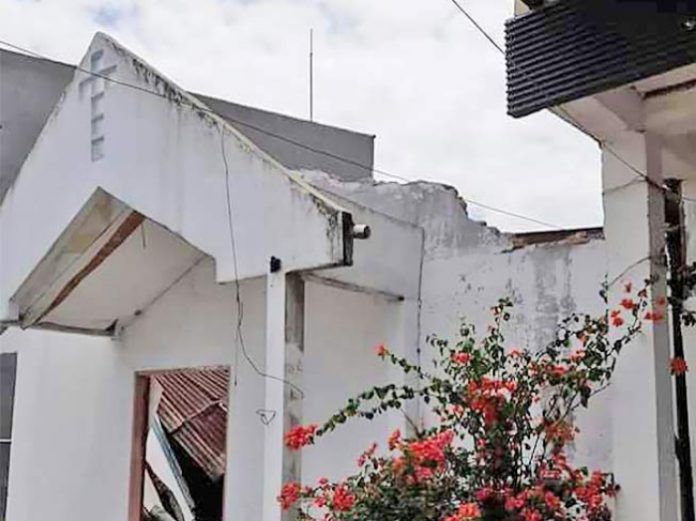11/24/2019 Washington D.C. (International Christian Concern) – Indonesia has 263 million people, 87% of whom are Muslims, making it the world’s most populous Muslim-majority country. Despite this fact, Islam is not the state religion and enjoys no state-sponsored preference, at least not on paper.
According to the country’s 1945 constitution, the state is “based upon the belief in the One and Only God,” however, the following article specifies that the “State guarantees all persons the freedom of worship, each according to his/her own religion or belief.”
That said, the Gereja Kristen Indonesia (GKI)-Yasmin Church congregation has suffered a reality quite contrary to this constitutional promise. The GKI-Yasmin Church is a Protestant Christian church established in Bogor, Indonesia, outside of the capital city of Jakarta. Their building was sealed by the Bogor city government on March 11, 2011 and has remained closed ever since.
Troubles for GKI-Yasmin congregation began when they attempted to build a church for themselves. On May 8, 2001, plans for construction were made and what would become the GKI-Yasmin congregation began collecting signatures from the community so that the city government would acquiesce to their request and issue a building permit for the church. They managed to collect 445 signatures from 2002 to 2006, and they finally were issued their desired permit by the mayor of Bogor on July 13, 2006. Unfortunately, resistance from Muslim neighbors in the area deprived them of the building permissions.
By the beginning of 2008, non-Christian community leaders drafted and sent a letter to the city government accusing the GKI-Yasmin Church of forging the 445 signatures and urged that their building permit be revoked. The church was banned by the city government in response, but the congregation did not give up. In 2009, they took their case to the Supreme Court of Indonesia which overturned the city government’s decision and affirmed that the GKI-Yasmin Church was, in fact, legal. Regardless of this decision, the city government revoked their permit and banned the church again on March 11, 2011.
This has been devastating to the congregation and, to this day, they are not permitted to worship on land that the church owns and must do so on the sidewalk beside it or in the homes of members. In addition, since their meeting has been deemed illegal, they have been intimidated not only by the city government, but the Civil Service Police Unit and other parties which accuse them of disturbing public order for gathering in front of the State Palace in Central Jakarta on Sundays.
Despite this disheartening account, there seems to be a beacon of hope for GKI-Yasmin and its congregation. Pastor Danny Purnama spoke with International Christian Concern (ICC) recently and shared, “Praise the Lord! In general, the latest information I have heard from Bogor Mayor [Bima Arya] is that he wants to facilitate for us to re-apply permits for our church building, so there is a better way out, Praise God! The city of Bogor declared itself to be a tolerant city, and tries to deal with [issues] that were problematic in the past pertaining to GKI-Yasmin building permit. Just recently, the mayor worked hard trying to connect us with those who were hardliners, intolerant and opposed [to] the construction of church buildings.”
He added, “Because the mayor is willing to facilitate, at the end of this year we are taking steps to start again to re-apply for our building permit for the church construction. Also, we have been connected with hardline groups who have refused to let us build our church, so in the future there will be better communication between us and the ability to understand each other very soon.”
If this long-awaited hope of the church is fulfilled, the congregation will finally be able to worship without interference at their own church building, after years of agony and frustration. Let’s continue to pray for GKI-Yasmin Church and the ongoing process to iron things out between various stakeholders.














